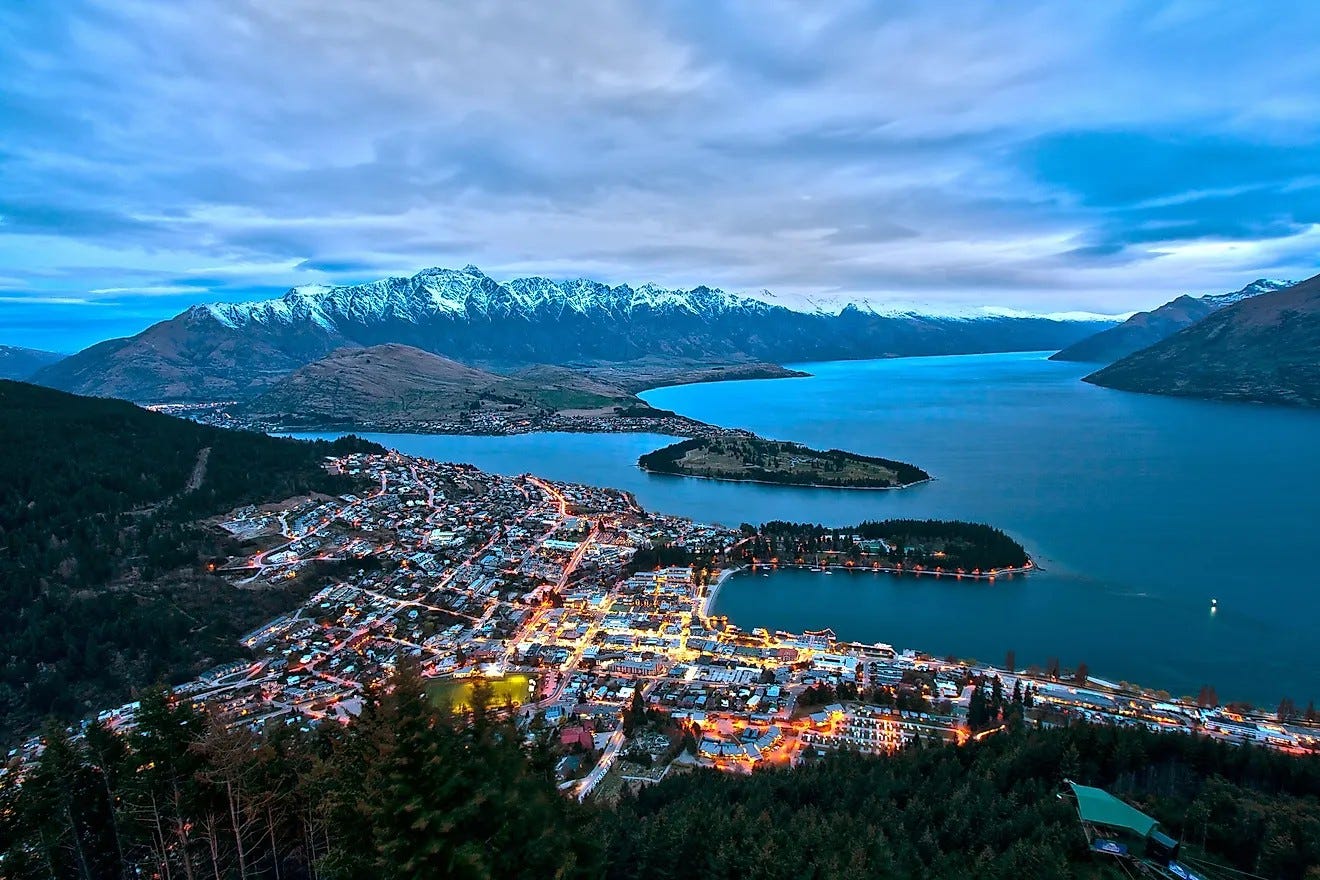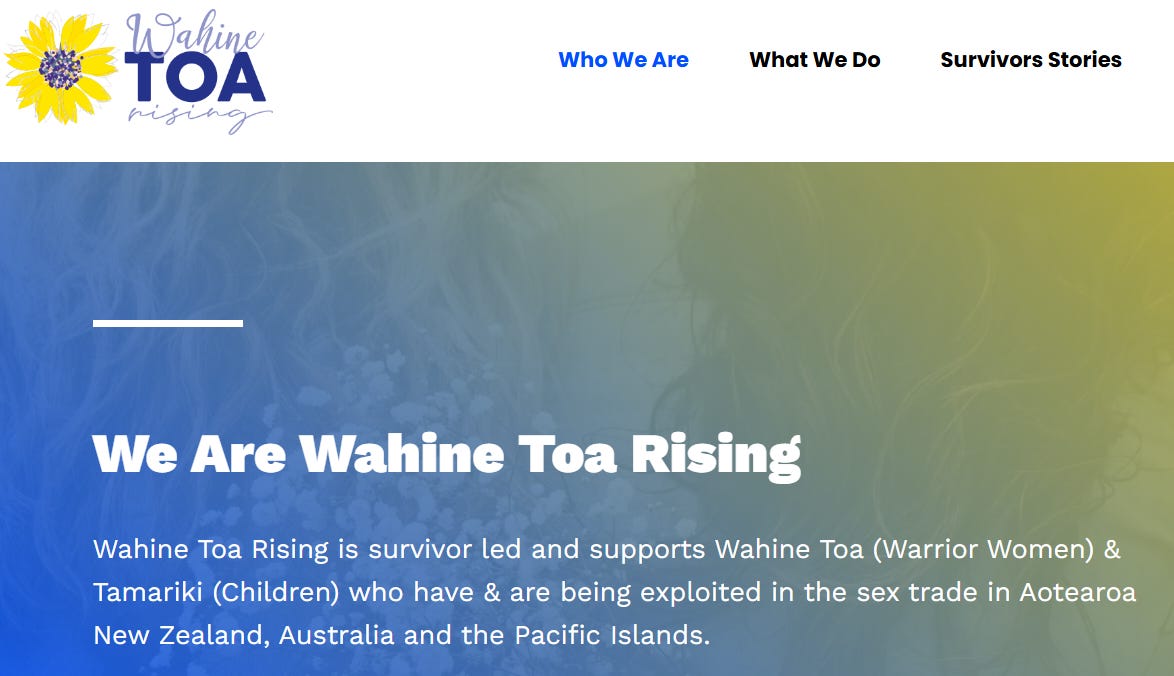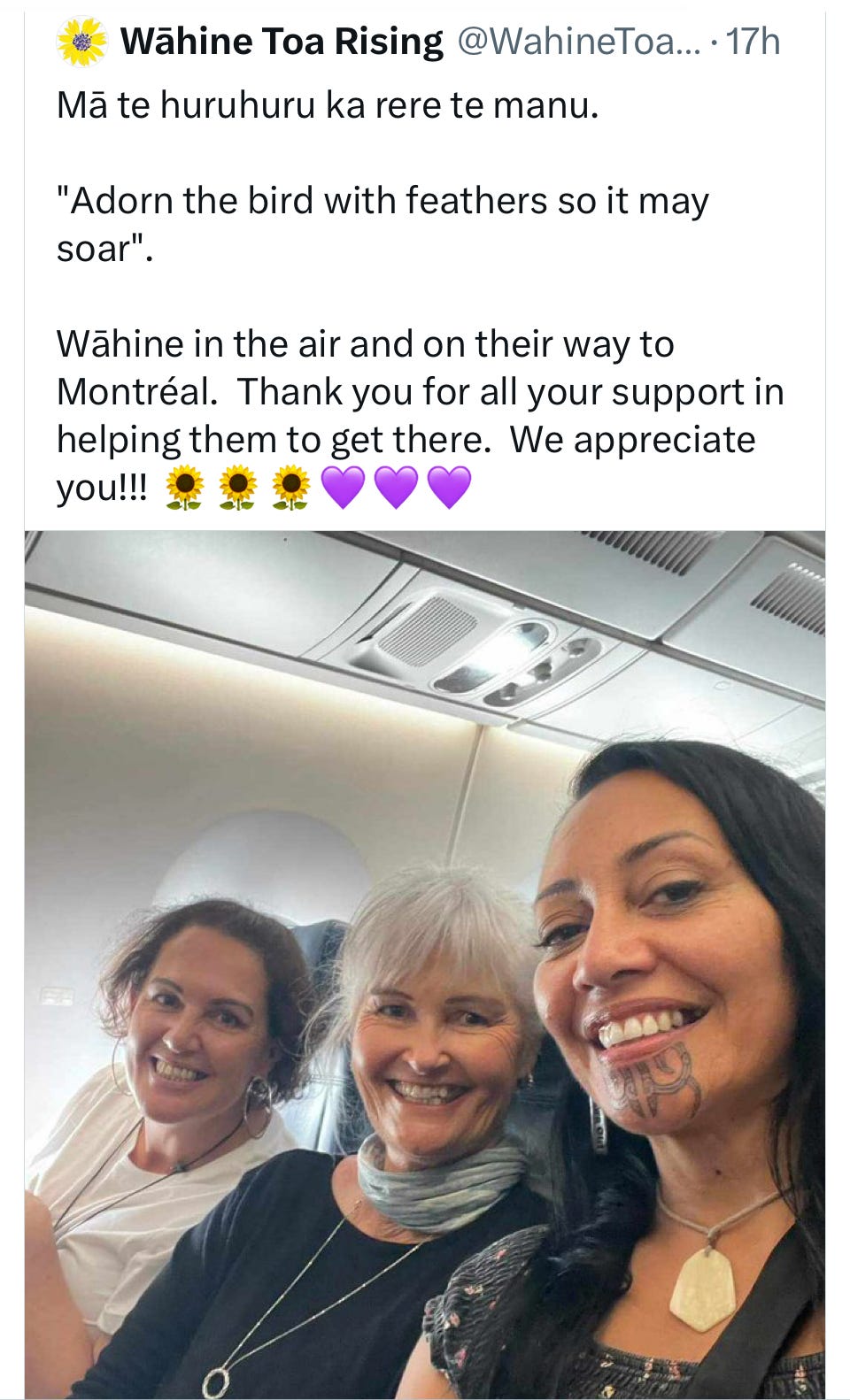Beautiful Queenstown NZ is proposing to expand the area where sex trade activities can occur.
Those who have been fortunate enough to visit Queenstown in New Zealand know that it’s a pretty special spot. As in, stunning-special. It’s amongst the ‘must see’ destinations for South Island tourists.
Queenstown itself has an urban population of 29,000, with 53,000 in the greater Queenstown-Lakes District region. I expect the permanent residents are a mixture of ages, but in the central area of Queenstown there is a noticeably large presence of young people, made up of residents, visitors, and workers.
Queenstown airport is a tricky one to get into, by all accounts, but obviously worth navigating the surrounding valleys and peaks for. Airport personnel are friendly – although the airport’s social media manager gets a bit prickly if questioned about whether they have single-sex toilet facilities, and if so, are they really single-sex.
It’s a serious matter if any venue puts the control of women’s and girls’ spaces into the hands of men by allowing free and unfettered entry into them for any man who calls himself a woman, which he can do for just five minutes if he wishes, and we have the right to know if the venue has done this.
From reading the below statement on their website, it’s unclear whether there are single-sex toilets at Queenstown airport, and if there are, whether any man who calls himself a woman is allowed into the female one.
And now the Queenstown-Lakes District Council is currently consulting on a draft by-law that would relax certain requirements and expand the area where sex trade activities can occur. This isn’t the first time they’ve had the expansion of sex trade activities put to them. I don’t disparage prostitutes, and know that there’s no one reason why women (and men and children) end up in the sex trade. For the most part, however, prostitution is nowhere near as innocuous as the intentionally disarming ‘sex work is work’ trope. I won’t get into that here, though – that’s a big conversation.
The Women’s Rights Party NZ are in (independent) agreement, and have made a submission¹ to the Queenstown-Lakes District Council against expanding the area where sex-trade activities can occur. In typical fashion of the odiously persuasive argument we have become used to hearing in regard to prostitution, Jill Ovens notes in the Women’s Rights Party submission that “Councillor Lyal Cocks argued that the current by-law should be revoked, and the Council should adopt a management approach through the District Plan as “no other small business is treated in this way” ”.
Over and above concerns about the impacts of prostitution on those who practice it, I doubt very much that if the area was expanded where prostitutes could operate individually as a “small business”, it would not end up including bigger prostitution and drug businesses, which benefit gangs and the like.
Wāhine Toa Rising, a sex trade survivor-led group for New Zealand, Australia, and the Pacific Islands, know that prostitution is much more detrimental than just being a ‘small business’, as per the sly framing used by those who wish to normalise it – either for their own ends, or because they’ve been duped into believing it - and that the sex trade is not a harmless industry.
For the first time since their inception, they have gone to the 4th World Congress for the Abolition of Prostitution in Montreal, Canada.
I wish them all the very best, and hope the contacts they make at the Congress are fruitful and mutually beneficial, and that they come back home to New Zealand loaded with great information on how to further their wāhine toa (warrior women) work.
¹News brief of the Women’s Rights Party NZ’s submission to the Queenstown-Lakes District Council
The Queenstown Lakes District Council is currently consulting on a draft by-law that would relax certain requirements and expand the area where sex trade activities can occur.
In its submission to the Council, the Women’s Rights Party opposed the draft by-law changes an called on the Council to support the women of Queenstown and Wanaka with liveable wages, affordable housing, and effective exit services so women are not forced into prostitution to survive economically in the district.
Women’s Rights Party Co-Leader Jill Ovens says she is a frequent visitor to both Queenstown and Wanaka with family members who live and work in both cities.
“The district is idyllic, but it has very real economic issues with low wages and unaffordable housing. I urge the Council to focus on these issues, rather than destroying the lake fronts by creating larger ‘red light’ districts,” she says.
In its submission, the Women’s Rights Party noted that the language in the reporting of the
Queenstown by-law debate reinforced the normalisation of prostitution by describing the sex
trade as being “just like any other small business”.
Councillor Lyal Cocks argued that the current by-law should be revoked and the Council should adopt a management approach through the District Plan as “no other small business is treated in this way”.
Health NZ Te Whatu Ora and the Aotearoa Sex Workers Collective were quoted as saying that having any restriction on their activities makes women vulnerable as they are acting outside the law. This is a circular argument, Ms Ovens says.
“The women are vulnerable because prostitution is by its very nature exploitation of women. Women in the sex trade are seen by buyers as commodities to be bought and by brothel owners and pimps to be sold,” she says.
The Prostitution Reform Act 2003 provided for brothel inspections to detect instances of violence, trafficking, rape of those under 18, or other illegal activities.
“Sadly women prostitution survivors report that regular inspections are not happening, and they have testified that decriminalisation has increased the buyers’ sense of entitlement, and has reduced women’s ability to refuse a buyer’s demands,” the Women’s Rights Party said in its submission.
“This is reinforced by the widespread use of pornography that sends a message that exploitation of women, including so-called “rough sex”, is acceptable when clearly it is not. The increased violence in pornography has made the sex trade even more dangerous for the women involved.”
The Women’s Rights Party noted that Queenstown Lakes is one of only seven Councils with by- laws restricting the sex trade as provided for in the Prostitution Reform Act 2003.
Jill Ovens
National Secretary/Co-Leader
secretary@womensrightsparty.nz
Submissions to the Queenstown-Lakes District Council close June 5
Public submissions open for proposed Brothel Control Bylaw 2024 (qldc.govt.nz)
NZ Herald article
Excellent article below about the sex trade from someone who was formerly in it.
Prosecute the Men Who Pay for Sex, Not the Women Who Sell It - Fairer Disputations









Hiring out one's body parts for the pleasure of others is not the same as "any other small business" and it's no surprise that this opinion came from a man. I am going to make a wild guess here and assume that Councillor Lyal Cocks would not be over the moon if he has any daughters, granddaughters, sisters, nieces, etc. who decided that their only feasible business plan involved them getting naked with strange men who sometimes need some persuading to pay for services rendered.
In trying to think of a male equivalent for prostitution, I am coming up empty, but perhaps the Councillor could make some suggestions for other small businesses that rely on desperation for their existence.
Councillor Lyal Cocks argued that the current by-law should be revoked and the Council should adopt a management approach through the District Plan as “no other small business is treated in this way”.
No other ‘business’ is treated this way because no other business dehumanises and degrades people to the same contemptuous extent.